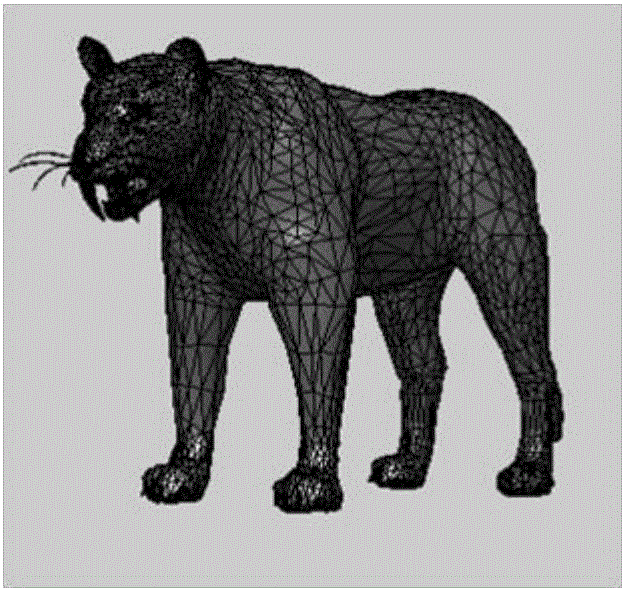3D model watermarking method based on Beamlet line feature positioning
A line feature and watermarking technology, applied in image watermarking, instrumentation, computing, etc., can solve the problem of poor anti-affine transformation attack ability, model vulnerable to translation, scaling, rotation, mesh simplification, and weak robustness of 3D model watermarking. and other problems to achieve strong robustness
- Summary
- Abstract
- Description
- Claims
- Application Information
AI Technical Summary
Problems solved by technology
Method used
Image
Examples
Embodiment
[0093] In this embodiment, six grid models (embedded watermark information) in the Princeton Shape Benchmark model library are selected and displayed as follows: M96 model (Leopard), such as image 3 Shown; M272 model (Dinosaur), as Figure 4 Shown; M336 model (Hand), such as Figure 5 Shown; M108 model (Horse), such as Image 6 Shown; M399 model (House), such as Figure 7 Shown; M341 (Face model), such as Figure 8 shown. The watermark information is a binary image b with a size of 16×16 pixels, and the bits of watermark information to be embedded are 256 bits, that is, M=256. The security of watermark information can be improved by combining watermark information into Gold sequence b′ by using spread spectrum technology. The watermarking process is as follows:
[0094] Step 1, embed watermark;
[0095] Step 1.1, determine the embedding position of the watermark;
[0096] Step 1.1.1, calculating the area of the first-ring neighborhood of the vertex of the three-dime...
PUM
 Login to View More
Login to View More Abstract
Description
Claims
Application Information
 Login to View More
Login to View More - R&D
- Intellectual Property
- Life Sciences
- Materials
- Tech Scout
- Unparalleled Data Quality
- Higher Quality Content
- 60% Fewer Hallucinations
Browse by: Latest US Patents, China's latest patents, Technical Efficacy Thesaurus, Application Domain, Technology Topic, Popular Technical Reports.
© 2025 PatSnap. All rights reserved.Legal|Privacy policy|Modern Slavery Act Transparency Statement|Sitemap|About US| Contact US: help@patsnap.com



